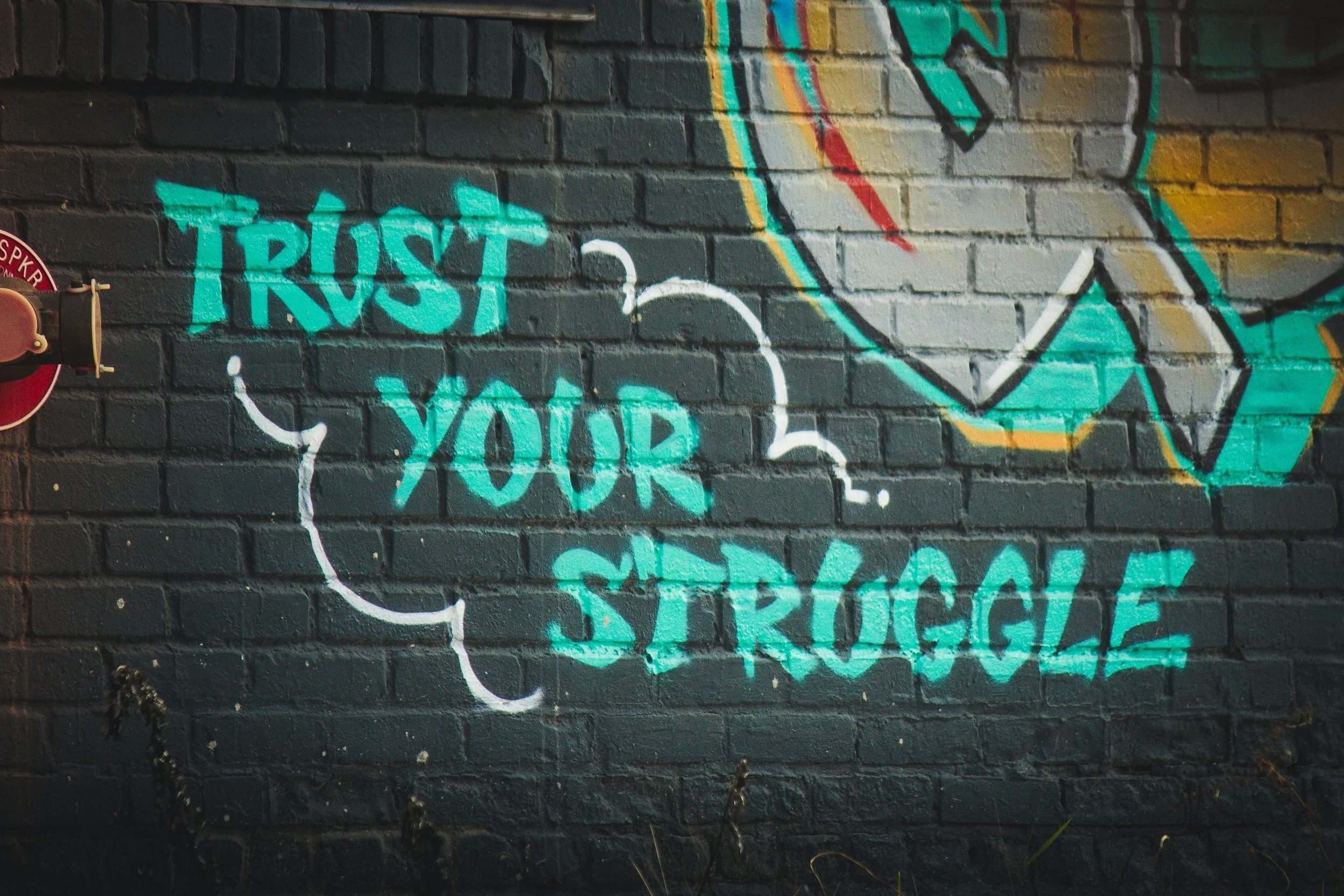When It’s Not Just Stress: Recognizing Everyday Signs of Unresolved Trauma In Trauma Therapy in Oakland
Uploaded from Unsplash on 11/13/2025
Your body constantly feels tense and alert. It's the constant tension in your shoulders, the racing thoughts, and sleepless nights. The nightmares. The way you're always "on." That underlying feeling that you can't truly trust anyone. Or how you feel disconnected from your own body when you're under pressure.
You just think of it as stress. In a city like Oakland, where life moves fast, people learn early how to push through and keep going.
But what if it's more than just the pressure of daily life? Sometimes, what we call stress is really our body remembering what the mind has tried to forget. If you often feel worn down, disconnected, or on edge for reasons you can't explain, it might not just be stress. It could be unresolved trauma screaming at you to be seen.
As a trauma therapist in Oakland, I've seen how unhealed trauma can shape a person's life. If you ever wonder why you're constantly on edge or why you sometimes feel numb and disconnected, it may be your mind and body's way of signaling that old wounds still need to heal. In this article, I'll help you recognize the subtle, everyday signs of unresolved trauma and how understanding them can be the first step toward genuine healing.
You could also explore: You Made It Through, but Something Still Doesn’t Feel Right: Unpacking Trauma with Trauma Therapy Oakland
What is Unresolved Trauma?
Unresolved or unhealed trauma happens when we haven't fully processed the emotional and psychological impact of a distressing experience. The pain we carry, often hidden beneath thoughts like, "It's not a big deal" or "I should be over it by now," can resurface years later in subtle, unexpected ways. A traumatic experience that you haven't yet released may show up through emotional, physical, cognitive, or behavioral symptoms that you perhaps write off as everyday just stress, anxiety, or "how life is."
If this sounds familiar, you're not alone. And there's nothing wrong with you. When we go through something frightening or deeply distressing, it's only natural to want to forget and move on. So, you push the memories down. You avoid the things that remind you of what happened, and convince yourself you're fine. You're just trying to breathe and keep going.
Even if you have been in therapy before, trauma may still linger if the treatment did not focus on addressing the roots of your symptoms. Working with a therapist who specializes in trauma therapy in Oakland can help you recognize how unhealed trauma shows up in your life so you can finally start healing unresolved issues.
What Causes Unresolved Trauma
Perhaps you experienced or witnessed a traumatic event that was deeply disturbing or life-threatening, such as a severe car accident, an earthquake or wildfire, or sexual abuse, harassment, or assault. Maybe you carry an unresolved trauma from childhood, like witnessing violence between your parents or experiencing abuse or neglect. Perhaps you were separated from your family or culture as a child.
But it doesn't have to be that obvious. You might actually not think of yourself as someone who has "trauma" because your childhood seemed normal enough. Maybe you grew up with strict or stressed parents, lost someone you loved early on, or felt pressure to be strong and keep going. Perhaps you've carried shame and self-doubt passed down through generations, or the belief that love must be earned.
Unhealed trauma often stems from years of feeling unsafe, unseen, or responsible for too much. Even in families and communities filled with love, like so many in Oakland, California.
You could also explore: Trauma, Anxiety, and Your Nervous System: Healing and Understanding Yourself with Trauma Therapy in Oakland
What Does Unresolved Trauma Look Like: Signs You Haven't Healed Yet
Many people think trauma shows up in dramatic ways, like flashbacks, depression, trouble sleeping, or nightmares. But signs of unhealed trauma don't have to be that obvious. You might feel constantly exhausted or irritable. You could be a perfectionist or feel the need to be "on" all the time. You might struggle to relax or feel joy without guilt. These are not personality flaws; they are signs that your nervous system is still in survival mode. Struggling to find well-being.
3 Ways Trauma Shows Up in Everyday Life (When You Don't Realize It's Trauma)
1. Emotional and Mental Health Impact
Emotional flashbacks
Trauma memories don't have a timeframe. If you've been through trauma, when something reminds your nervous system of it, you may emotionally react as if the distressing event is happening right now.
Anxiety
Your mind may be in a constant state of alertness. You worry about everything, constantly scanning for what could go wrong next, even when everything in your life seems calm. You may experience sudden waves of fear or physical sensations, like a pounding heart and shortness of breath, without warning.
Anger
You react with bursts of rage every time you're frustrated, even over the small things. This happens not because you're a bad person. It happens because your body still remembers what it feels like to be powerless.
You could also explore: Breaking the Silence: Why Many Men Struggle to Talk About Their Feelings
Feeling overwhelmed
Sometimes, even the simplest tasks take too much energy, leaving you drained and making it hard to make decisions or cope with everyday stress.
Hyperarousal
You’re always on the lookout, always ready to react. Small things can suddenly set you off and being in this state feels so exhausting.
Dissociation
Sometimes, especially when stress feels too intense, you might mentally check out. It feels like you're watching yourself from a distance, as if you're disconnected from your thoughts, memories, feelings, and behaviors.
Low self-esteem
You believe that something's wrong with you at the core. That you don't deserve love, success, or peace. That you're not enough. That you are broken. Years of feeling unsafe or unseen that can leave you doubting your worth.
2. How Trauma Impacts Your Physical Well-Being and Behavior
Somatic flashbacks
Your body remembers trauma, no matter how long ago it happened. You may experience the physical sensations of a traumatic event all over again each time something reminds you of a past painful experience. Your heart races, and you feel goosebumps along your neck, even though you know you're safe now.
Addictive behaviors
You might turn to alcohol, drugs, or other addictive behaviors like gambling, shopping, sex, work, or social media. You use them as a temporary distraction from emotions that feel too overwhelming.
Eating Issues
Unusual eating habits can be a sign of unprocessed trauma. You might notice that your appetite changes a lot. You may end up losing weight quickly without really trying, or you find yourself binge eating (eating a lot of food all at once).
Inflammation
Stomach issues like irritable bowel syndrome or gut inflammation. The connection between the gut and brain is essential here because chronic stress and anxiety can disrupt the gut-brain connection, leading to stomach problems.
Severe migraines & insomnia
You may have had painful headaches for years. They are often followed by nightmares that keep you from sleeping at night.
3. How Unresolved Trauma Impacts Relationships
Communication difficulties
You have difficulty communicating your needs out of fear of being dismissed or ignored. At the same time, you overreact to minor conflicts or misunderstandings because they make you feel neglected or abandoned.
People-pleasing and codependency
If you've been through trauma, you may have learned to stay safe by saying "yes" even when every part of you screams "no." You're not alone. This is known as the fawn response, in which you appease or please others so much that you suppress your own emotions, needs, or identity. For some, this pattern can evolve into codependency. You may feel responsible for other people's happiness, neglecting yourself, and measuring your worth by how well you take care of others.
Trust issues
You struggle to trust others even when you know their intentions are good. Having healthy, fulfilling relationships feels impossible because you push partners away or shut down when vulnerability feels too risky.
Seeking reassurance
You feel rejected or betrayed whenever your family or friends don't instantly reply to your texts. You feel unseen and abandoned when they are busy or unavailable. You need their constant reassurance to feel secure in the relationship.
The need to control everything
You are overly controlling or reactive in your relationships as you're trying to protect yourself from being hurt again.
You could also explore: Why Do I Feel Anxious? Discovering the Roots of Your Anxiety with an Anxiety Therapist in Oakland
Uploaded from Unsplash on 11/14/2025
How Can Trauma Therapy in Oakland Help
Trauma therapy is designed to address the lasting emotional and psychological effects of painful experiences. Unlike general talk therapy, it focuses specifically on how trauma has shaped your body, mind, relationships, and sense of safety in the world. It will help you process memories in a way that feels manageable and grounding, so your nervous system can begin to release what it's been holding. Together, we create a safe, supportive space where trust and safety come first. And this is the foundation for meaningful healing.
Oakland Trauma Therapist
Author Bio:
Lara Clayman, LCSW specializes in trauma therapy in Oakland, online therapy across California, anxiety, multicultural issues, and counseling for men.



